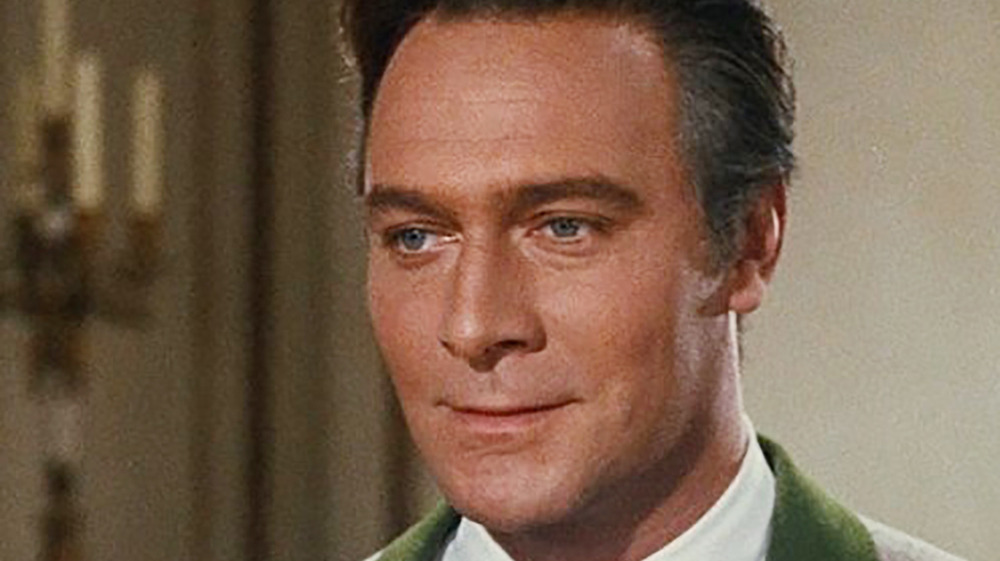I suspect most people saw Christopher Plummer for the first time in the role of Captain Von Trapp in “The Sound of Music” in 1965. Not I. My first acquaintance with Plummer was a 1962 Hallmark Hall of Fame teleplay of Rostand’s “Cyrano de Bergerac.” My dad, mom, sister, and I watched it from beginning to end, a rewarding experience and one that seems more like centuries than decades removed from today’s TV fare. My father, who loved José Ferrer’s Academy-Award rendition from 1950, declared Plummer’s Cyrano superior. Perhaps it was although Plummer himself declared the broadcast inferior to the stage production he’d performed.
But here’s the point: when I finally saw Plummer again three years later as Captain Von Trapp, I couldn’t believe my eyes or ears. Could that be the man that played the long-nosed, eloquent Frenchman? And there you have Christopher Plummer. Maybe he was a star, but not in the old Hollywood sense. James Stewart was one of the greatest film actors, but, as with Gary Cooper, Cary Grant, and John Wayne, his ability often got obscured by his stardom.
We love him and underestimate him at the same time. People once queued up for, and, now, rent, own, or stream “Jimmy Stewart” movies. There are multi-disc “Jimmy Stewart” collections. Anyone can name the films: “Mr. Smith Goes to Washington,” “Harvey,” “It’s a Wonderful Life,” “Anatomy of a Murder,” and many more. The talent was there, but the Hollywood starburst effect was occasionally too dazzling.
But Plummer? Have you ever primed yourself to watch a “Christopher Plummer” movie? Probably not. However, once you’ve seen him on screen, you remember him, not as the star but as the character he played and, possibly more than any other character in a given film (well, except for “The Sound of Music”). He was Cyrano, Von Trapp, Eddie Chapman (scoundrel, hero, and spy) in “Triple Cross,” Quentin in Arthur Miller’s “After the Fall,” an unforgettable Rudyard Kipling in “The Man Who Would Be King,” and a strangely likable Herod Antipas in “Jesus of Nazareth.” The list goes on.
To my mind, he stole the show from Richard Chamberlain in “The Thorn Birds,” playing the wise and sympathetic Archbishop Vittorio Contini-Verghese. In old age he played Tolstoy so well in “The Last Station,” I could almost forgive the great novelist for degenerating into such a cult-inspiring pseudo-priest and crank.
In other words, there are two types of figures in film: those who, for good or ill, can’t quite shake off the aura of stardom and those who can’t quite acquire it. Both are great, and Plummer, like another superlative actor, defined more by his characters than himself, Roger Livesey, resided among the latter group.
Born in Toronto, Canada in 1929, Plummer established himself on stage following high school (he never attended university), eventually moving into Shakespearean leads. Dramatic roles on television, as well as stage, came quickly by the late fifties and sixties, and after he became Captain Von Trapp, the world knew him after a fashion, but what it knew was the latest role.
Yet if he was a kinda, sorta star, it was more often on the stage, where, let’s face it, Hollywood star-quality can take one only so far. A flubbed line, even from Jimmy Stewart, is still a flubbed line. Plummer must have stumbled here and there (anyone who dips into his entertaining memoir “In Spite of Myself” will recall some hilarious tales of disasters on the boards), but his superb performances have largely erased from memory such moments. Proof is in the awards he garnered: seven Tony Awards nominations (winning twice) and seven Primetime Emmy nominations (also, with two wins).
The Oscar nominations came late, the first in 2009 (“The Last Station”), the second in 2010 (a win for “Beginners”), and a third in 2018 (for “All the Money in the World”). He’s both the oldest winner and nominee in the history of the Academy. Never one to rest on his laurels, he continued to act till the end, appearing in the film “Knives Out” in 2019 and a Canadian TV series “Departure” in 2020; a commitment to play King Lear (not the first time) in a Canadian production was sealed and set to film in Summer 2021. Like P. G. Wodehouse, who died with his notebook on his lap, Plummer passed from this world studying his next role.
Sir John Gielgud reminisced once about his great mentor Claude Rains, commenting that although he lamented Rains’ leaving the stage for film, he later decided that Rains was right because in film his performances were preserved for generations. Although Plummer became more of a television/film than stage actor in the twilight of his career, later than Rains did, we can be glad we have so many opportunities to see him at work, sometimes in performances that cannot be bettered. He will be missed for what he might have done had he lived, but he will be remembered and enjoyed for what we can all easily and plainly see.














